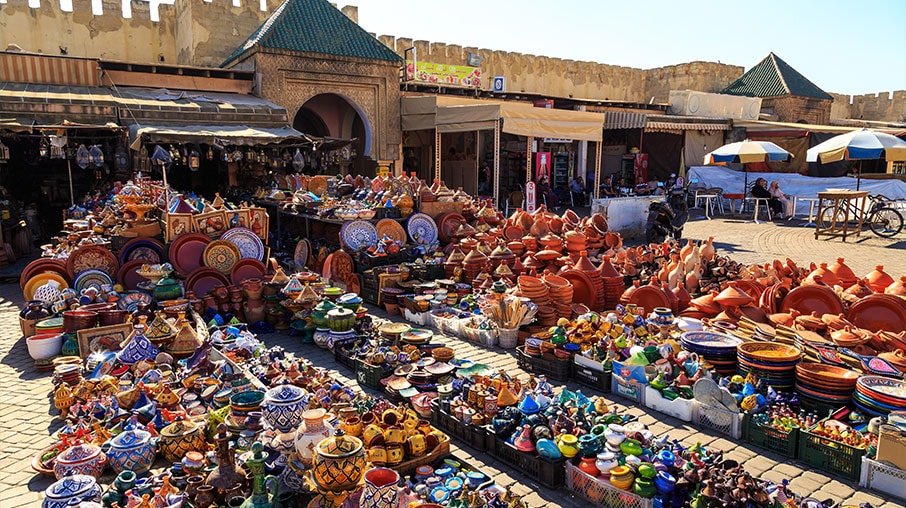Overview
Value Added Tax (VAT) was introduced in Angola and came into force from 1 October 2019 to replace the Consumption Tax. The Angolan VAT system is a modern regime with a general rate of 14% with an established broad tax base.
The VAT system in Angola has some provisions such as the captivation regime and/or refund through tax credit certificates.
Release date: May 2023
Scope of VAT |
VAT applies on:
The following persons are liable for the payment of VAT:
|
Standard regime All entities with a turnover or goods import operations higher than AOA350,000,000 are liable to the standard VAT regime. These taxpayers and those that choose to be framed in the standard regime should assess VAT on the supplies of goods and services and, in principle, are able to deduct the VAT incurred on their purchases. Entities operating in the manufacturing industry are always obliged to be on the standard VAT regime. However, the entities operating in the manufacturing industry whose turnover or import of goods are less than AOA10,000,000 can be excluded from the standard VAT regime. The taxpayers subject to this regime should:
Stamp Tax When carrying out operations exclusively VAT exempt, without the right to deduct, taxpayers are required to pay Stamp Duty on receipts, at a rate of 7%. International air transport of passengers and rental of real estate are subject to a 1% rate. |
Simplified regime Taxpayer whose turnover or goods import operations is equal to or less than AOA350,000,000 fall under the simplified regime. According to this regime, taxpayers must pay, on a quarterly basis, an amount of VAT corresponding to 7% of the amount received from non-exempt transactions, including advance payments, less 7% of the total VAT incurred. When acquiring services from non-resident entities, must self-assess VAT at the rate of 7%. Stamp Tax Taxpayers under this regime must pay Stamp Duty on receipts, of transactions that, under the standard VAT regime would be VAT exempt, at a rate of 7%. International air transport of passengers and rental of real estate are subject to a 1% rate. The Stamp Duty paid is a cost deductible for corporate income tax purposes. Taxpayers under the simplified regime may opt to be included in the standard VAT regime if all the following requirements are fulfilled:
When changing from the simplified to the standard VAT regime, an entity is allowed to deduct the VAT incurred on goods to be sold that have been acquired in the 12 months preceding the change and upon authorisation from the Angola Tax Authorities. |
Non taxation regime Taxpayers whose turnover or goods import operations are equal to or less than AOA10,000,000 are excluded from the scope of application of VAT. |
VAT rates |
The general VAT rate is 14%. However, the following reduced VAT rates are applicable to a specific set of transactions:
|
VAT registration |
Compulsory registration All corporate and individual entities carrying out taxable economic activities are obliged to register with the competent tax department. The start-of-activity documentation must be submitted 15 days prior to the start of operations. |
Voluntary and group registration No provision is made for voluntary registration, neither for group registration. |
Non-residents Non-resident entities without a permanent establishment in Angola who carry out transactions liable to VAT in Angola to private individuals (which cannot self-assess VAT) shall register in Angola and appoint a resident legal representative. The legal representative and the non-resident entity are jointly liable to the Angolan Tax Authorities. |
Application for registration No instruction explaining the procedure has been published by the tax authorities. |
Deregistration Deregistration is achieved through completion and submission to the tax authorities of the proper application form, which shall be filled within 30 days from the end of activity. |
Input tax deduction |
Input tax allowed Taxpayers are allowed to deduct VAT of goods and services used for the purposes of the taxed taxable or zero-rate transactions. VAT deduction is only allowed if the taxpayer holds the relevant invoice or equivalent document dully issued. VAT deductions is blocked in relation to the following expenses:
However, input tax is allowed when they relate to goods or services whose supply constitutes the main activity of the taxable person. |
Partial exemption Taxpayers carrying out simultaneous transactions that grant the right to deduct VAT and VAT exempt supplies can recover VAT on inputs on an apportionment basis (pro rata method). |
Oil investing companies Input VAT deductions is denied for oil investing companies, in relation to the following expenses:
In production phase, VAT deduction is also denied in relation to:
|
Output tax |
Brief description of output tax Output tax is calculated by applying the applicable VAT rate to the taxable value. In Angola, there is a captivation regime (withholding VAT) which consists of VAT being withheld by recipient of goods/services in determined sectors:
The General Tax Administration (Administração Geral Tributária or AGT) can decide on the inclusion or exclusion of taxable persons from the obligation to captivate VAT, whenever justified reasons of protection of public revenues exist. There are some goods/ services not subject to the captivation regime, for instance, transmissions of goods made by supermarkets or services provided by commercial banks. |
VAT Exempt supplies The following supplies of goods and services are VAT exempt:
|
Zero-rated supplies The following supplies of goods and services are Zero-rated:
|
International trade |
Imports Goods Goods imported into Angola are subject to VAT. The following import of goods are VAT exempt:
Services Services acquired by an Angolan taxpayer from foreign suppliers are liable to VAT, to be reverse-charge by the acquirer, except for:
|
Exports Goods Exports of goods are zero-rated. Services Services provided to foreign taxpayer are not liable to VAT, except for:
Nonetheless, services used or whose effective exploitation occurs in Angolan territory are liable to VAT in Angola, even if the acquirer is non-resident in Angola. |
Place, time and value of supplies |
Place of supply The place of supply of goods is the place where the transport of the goods to the customer begins or, in the case no transport occurs, the place where the goods are made available to the acquirer. The place of supply of services is the place where the acquirer has established their business or has a fixed establishment. Exceptions to the above rules include:
|
Time of supply The chargeable event shall occur, and VAT shall become chargeable when the goods or the services are supplied. When the supply of goods and services is made under a contract that foresees periodic and successive payments, the supply is regarded as being completed on expiry of each period. When the supply of goods and services give rise to an invoice, VAT is due at the time the invoice is issued or until the end of the deadline for its issuance (fifth working day following the operation that caused it) if it is not met. |
Value of supply The taxable amount includes everything that constitutes consideration obtained or to be obtained by the supplier in return for the supply from the customer or a third party (including any taxes and duties other than VAT, and expenses related to commissions, packaging, transport and insurance paid on behalf of the customer). In respect of the importation of goods, VAT is charged on the customs value, determined according to customs legislation, added to the following elements, to the extent that they are not yet included in the customs value:
|
VAT compliance |
Accounting basis and tax period The accounting must be organised in such a way as to make it possible to know clearly and unequivocally the elements necessary for the VAT calculation, as well as to allow for its control, containing all the data necessary for the filing of the periodic VAT return. VAT returns are submitted on a monthly basis, both for the standard VAT regime and the simplified VAT regime. |
Returns and payment of VAT The VAT return comprises a cover page, a suppliers annex and regularisation annexes. VAT returns must be submitted until the last working day of the month following that to which the transactions relate to. If a “VAT to be paid” is calculated, the VAT must be paid until the last working day of the month following that to which the transactions relate to. If a “VAT credit” is calculated, it may be carried forward to the following month or subject to a refund claim, as further explained below. |
Tax assessments, objections and appeals The tax authorities may issue additional assessments, and taxpayers are entitled to challenge such assessments, under certain conditions. Taxpayers may claim before the tax authorities (Administrative Claim) or before the Court (Judicial claim).
|
Time limits The status of limitation is five years. After the notification of an additional assessment, the tax liability has a limitation period of ten years. |
VAT refunds VAT refunds may be submitted if:
VAT refund are only accepted if the following conditions are meet:
The refund, when due, must be made by the Tax Authority until the end of the third month following the submission of the respective request. The Tax Authority may suspend this period for 30 days from the date of receipt of the notification when, due to facts attributable to the taxpayer, it is not possible to assess the legitimacy of the refund requested. The Refunds, once confirmed, are granted in cash or tax credit certificate to be issued by the Angolan Tax Authorities. |
VAT record-keeping |
| The documents and records must be kept in Angola. |
Specific VAT rules |
Bad debts A taxpayer may deduct VAT previously invoiced to a debtor if the debt has been formally recognised by the court as a bad debt under an enforcement or insolvency process or in case it has been outstanding for more than 18 months. If the taxpayer subsequently recovers all or part of the outstanding debts, they must account for output tax. |
Leasing The taxable base on the lease of movable goods is the capital amount. |
Promotional gifts The supply of promotional gifts and samples is not considered a supply of goods and is therefore not subject to VAT if the unit value of the promotional gift or sample being supplied is lower than 569 fiscal correction units (UCF), and the total amount of supplies of these goods, in a year, does not exceed the amount of 22.727 UCF. |
Secondhand goods Secondhand goods are subject to the VAT Margin scheme, under which VAT is applicable to the difference between the sale price and the purchase price. |
Currency conversion When invoices are issued in foreign currency, the taxable basis should be determined using the Angolan Central Bank exchange sale rate on the date on which the VAT becomes chargeable. |
Transfer of business The transfer of a totality of a business or part thereof (if constituting an independent activity) is excluded from tax, provided the recipient is, or will become, a taxable person. |
Additional information related to VAT |
Legal Regime of Invoices and Equivalent Documents For VAT purposes, invoices must be issued no later than the fifth working day following the date of the supply of the goods or service. Invoices must be written in the Portuguese language and contain the following references:
Credit notes Credit notes are used in the case of the cancellation or reduction of the value of a past operation, adjusting the relevant value. Credit notes must comply with various requirements applicable to invoices, must always make reference to the invoices to which they relate, and must explicitly mention the amendment. The rules applicable to credit notes apply to debit notes as well. VAT may or may not be included on credit notes. Usually, the inclusion of VAT on credit notes does not have a financial effect. |
Withholding of VAT by commercial banks, in the processing of payments by card Commercial banks involved in the processing of payments by card, through POS (Point Of Sale), related to supplies of goods and service are obliged to withhold 2.5% of each payment. This amount must be transferred directly to the State, within 24 hours after the closing of the accounting period of the automatic payment terminals; the remaining amount is transferred to the retailer’s bank account. Retailers may deduct the total amount of the VAT withheld in their VAT return, as a payment on account. |
Other indirect taxes |
Import duties Import duties are levied on the importation of goods. The taxes vary according to the Customs Tariff Schedule. |
Customs duties Customs duties are levied on imports at ad valorem rates varying from 2% to 70%. Listed equipment may be imported temporarily if a guarantee is provided in favour of the Angola Tax Authorities. In addition, a 2% customs fee is due on importation. The export of goods that are not produced in Angola is subject to customs duties at the rate of 20% plus customs fees (at rate of 0.5%) computed on the customs value, with the exception of goods covered by the Customs Regime Applicable to the Petroleum and Mining Sectors. A special exemption regime applies for the oil industry. Update of the customs duties and rates applicable to certain products as per Annex II of the State of Budget of 2022. |
Excise duties Excise duty entered into force in Angola on 1 October 2019. It was published, Law No. 16/21, of July 19 – Excise Duty Law, which revokes Laws No. 8/19, of 24 of April and No. 18/19, of 13 August. All production, imports, and sales by public auction are subject to excise duty, with rates of 0%, 2%, 3%,4%, 5%, 8%, 15%; 19%, 20%, 25% and 50%, depending on the product. The excise duty code covers operations with the following products:
Producers are required to assess the excise duties when goods are made available to purchasers/clients and should be submitted in duplicate and electronically, until the last day of each month. The Excise Duties Code also provides for some exemptions, including:
The tax stamp is mandatory, according to the model approved by a specific Diploma, to manufactured beverages, tobacco and its substitutes, referred to in Annex I of this Law. The establishments that produce beverages, tobacco, and its manufactured substitutes and petroleum products, referred to in Annexes I and II of this Law, must be equipped with a counting and measuring system for electronic transmission of data to the AGT in an automatic manner of information related to production. The counting and measurement systems referred to above must be certified by AGT, under the terms to be regulated. The lack or delay in the electronic submission required implies the payment of a fine of Kz: 300,000. |
























